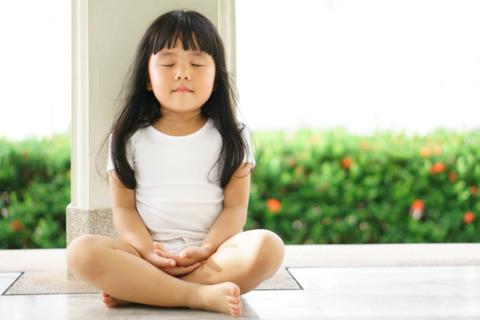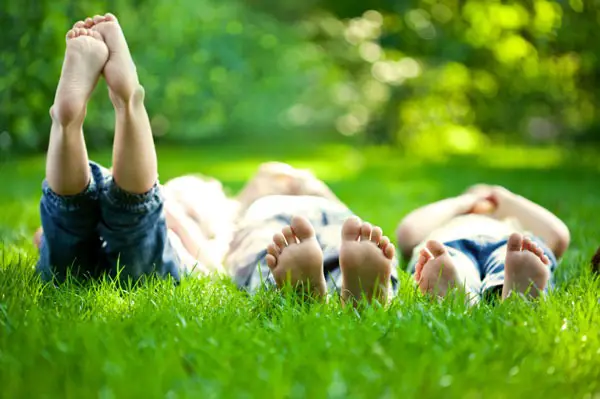
Mindfulness techniques for children have the potential to increase their attention span, memory, self-acceptance, autonomy, and self-understanding. This is a type of westernized meditation since it has been adapted to the needs of life in the west.
Mindfulness has been used for adults in treatments for stress, chronic pain, anxiety, depression, borderline personality disorder, eating disorders, and addictions. Furthermore, some researchers suggest that this type of mental training is also beneficial for daily life.
Mindfulness for children enables training in the regulation of attention and allows them to be aware of what they usually overlook when they activate the autopilot. Furthermore, it allows them to pay full attention to the present moment, that is, to be aware of what is happening here and now.
Mindfulness exercises that you can teach your children:
“Posing with your mind up”
An easy way to get kids to pay attention is through the body posture method. To get your child interested, tell him that doing fun poses can help him feel strong, brave, and happy.
The “Superman” pose: is performed by standing with their feet wider than their hips, fists clenched, and arms outstretched, stretching the body as much as possible.
“Wonder Woman”: This pose is also performed with the legs more open than the width of the hips apart and the hands or fists placed on the hips.
“Safari”
This exercise is another fun way to help children learn mindfulness. The activity consists of taking a daily walk outside in search of a new and exciting adventure.
Tell your child that he is going on a safari and that his goal is to write down as many birds, insects, bugs, and any other animal that can be seen. Anything that walks, crawls, swims, or flies is in his interest and he needs to focus all his senses to find them, especially the little ones.
This would be the equivalent of what in adults we call the mindfulness walk. This exercise provokes the same response in children as walking in adults.
Main benefits of mindfulness for Children

• Mitigation of the effects of bullying
• Increased attention span in children with ADHD (Attention Deficit Hyperactivity Syndrome)
• Reduction of attention problems
• Improvement of mental health and well-being
• Improvement of social skills when they are taught and practiced
Recommendations when practicing mindfulness for children
Make sure children are prepared to give mindfulness a try. If they are full of energy and want to run and play, this may not be the best time to try mindfulness.
Offer to practice mindfulness with them. Sometimes having a role model to follow makes a difference.
Finally, end the practice by letting them do something they enjoy to make sure they have a positive rewarding experience.

